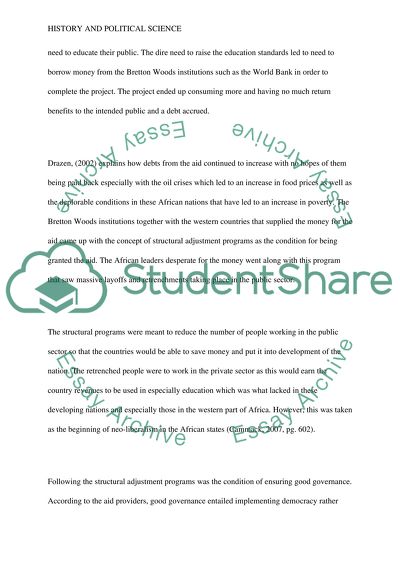Cite this document
(“African Politics - Aid Essay Example | Topics and Well Written Essays - 2000 words”, n.d.)
African Politics - Aid Essay Example | Topics and Well Written Essays - 2000 words. Retrieved from https://studentshare.org/history/1636379-african-politics-aid
African Politics - Aid Essay Example | Topics and Well Written Essays - 2000 words. Retrieved from https://studentshare.org/history/1636379-african-politics-aid
(African Politics - Aid Essay Example | Topics and Well Written Essays - 2000 Words)
African Politics - Aid Essay Example | Topics and Well Written Essays - 2000 Words. https://studentshare.org/history/1636379-african-politics-aid.
African Politics - Aid Essay Example | Topics and Well Written Essays - 2000 Words. https://studentshare.org/history/1636379-african-politics-aid.
“African Politics - Aid Essay Example | Topics and Well Written Essays - 2000 Words”, n.d. https://studentshare.org/history/1636379-african-politics-aid.


